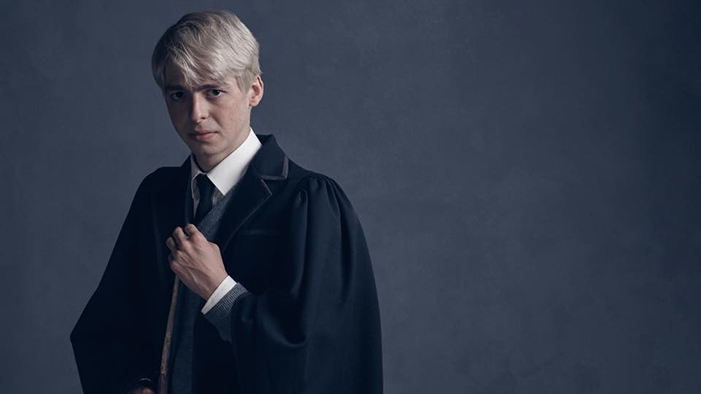The Official SparkLife Review of Harry Potter and the Cursed Child

Let’s have an open and honest (spoiler-free) discussion about Harry Potter and the Cursed Child.
I was determined to give this book the chance it deserved, but I also wanted to temper my expectations in case it was terrible. I figured at worst it would suck, and at best it would not suck too much. Going in, part of me was thinking “I will hate this because it’s new and I hate change,” and part of me was thinking “I will hate this because it’s too similar to the original story and if you’re trying to pull at the nostalgia heartstrings then NICE TRY, J.K. ROWLING, YOU WITCH OF SADNESS, BUT YOU’RE NOT GETTING ME.”
That said, look what happened. If we’re going to go any further with this then you should know who I am and what I am about:

The blue ones are parts where I either 1) thought about crying, or 2) actually cried the kind of gross human tears that terrify both man and beast. And I wasn’t crying because of how bad it was. You know that perverse feeling of joy you get when your heart is being ripped out of your heaving chest? Yeah. It was that.
Cursed Child surprised me. It revisits the original story we all know and love without eclipsing the new one. There are some fresh faces, since the narrative focuses heavily on Harry’s son, Albus Severus, but there’s also a slew of familiar ones—including some you might not be expecting. I liked that the story relied on the original canon without changing or invalidating it, and without feeling overly contrived. Cursed Child is threading an impressively inclusive needle there, and it works.
Now let’s get this out of the way: I, too, am a human conduit of the Information Age, I am literally always online, and I know every single thing people are saying about Cursed Child sounding like an egregiously bad fanfic. They’re not wrong. Taken on its own, the plot sounds absolutely ridiculous. How can I reconcile that with the fact that I completely loved it? I can’t. I can only sit here, awash in my personal horror, and wait for the end of days.
I’m kidding. Here’s the rub: Cursed Child is a continuation of the Harry Potter saga. It’s the eighth story, but it is not—nor is it intended to be—the eighth book. It is a play, first and foremost, and plays and novels are wholly different vehicles for storytelling. I know we all know this. But I also think this is something that’s difficult to remember when you’re dealing with a beloved literary juggernaut we’ve all been reading and re-reading for upwards of a decade.
Put simply, Cursed Child is often theatrical, sometimes campy. Plot points are exaggerated and characterizations are simplified for purposes both comedic and dramatic. There are zany elements that would sound downright bananas if you were to apply them to the book universe with which we’re all familiar, but they work perfectly in a live production. This isn’t a bad thing, necessarily, just different—not unlike national treasure Alan Rickman and his book-to-screen interpretation of Severus Snape. It had very little in common with book!Snape, but it’s now an iconic facet of the wider Potter lore.
One of my favorite things about the story is how well it played to an audience of hardcore fans without becoming inaccessible to newer ones. The reason I was so often on the brink of tears was because I’m a hypersensitive trash baby, yes, but also because the narrative takes place in the wizarding world we all grew up in. They would briefly mention a minor character from way back when and I would be like “HELL YES, THE GANG’S ALL HERE.” That said, it isn’t taking a trip down memory lane purely for the sake of nostalgia, nor is it trying too hard.
Harry Potter means a lot to me, as I’m sure it does to you. If I hated Cursed Child with the passion of a thousand fiery suns, I would tell you guys. I’m not scared. Guess what? I didn’t like Pacific Rim, and this haunts me every day. I think if you’re measuring Cursed Child to the standard of the original stories, you will probably be disappointed. If you can accept it for what it is and evaluate it as such, you might just like it as much as I did.
Or maybe you won’t. You might still hate it. That’s okay! We can still be friends. As long as we can all agree that Voldemort exploding like a piñata in Deathly Hallows was one of the great cinematic missteps of our time, that is.












